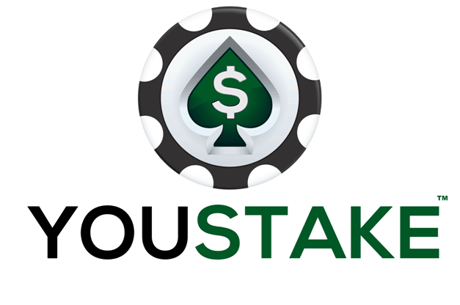WSOP Insights: Legal Guide to Poker Staking

Maurice “Mac” VerStandig is the managing partner of the VerStandig Law Firm, LLC, and focuses his practice on representing poker players, advantage gamblers, and other industry professionals in all manner of legal situations. He can be reached at 301-444-4600, or [email protected].
Sitting in a tediously manicured conference room, draped with imposingly private panes of frosted glass and bunkered with acoustically soundproof technology, the well-regarded lawyer who had summoned me with more intrigue than explanation leaned forward. With a cross of bemusement and confusion across his face, he asked; “So, how exactly does poker staking work?”
Staking agreements often do not translate well into the language of the courtrooms.
The short answer I started to furnish, replete with comments on markup and makeup, caused his otherwise stoic eyebrows to dance with an almost animated frenzy. By the time I touched upon setting off stakes with swaps, his complexion was so ashen as to be ghoulish.
The staking regime poker players take for granted is not just cliquishly niche; to those outside a world where final table draws dominate social media feeds, it can appear criminally rogue. Which, unfortunately, means that staking agreements often do not translate well into the language of the courtrooms operating as their enforcement mechanism of last resort.
Yet this need not be the case. Staking agreements can – and often should – be reduced to perfectly nonchalant legal language, and such arrangements can – and, again, should – be carried out in a manner that is not doomed to ultimately drain the blood flow to a judge’s forehead. Players just need to be aware of certain key points.
At the outset, just as with every other aspect of poker, be mindful of the person with whom you are dealing. If your mother is handing you $100 to mesh into your Main Event buy, you should be able to safely look past the formality of paperwork unless your life fits neatly into the lyrics of an Eminem track. And, in the name of all that is moral even in a gaming world replete with vice, please do not charge your mother a markup.
Staking agreements can – and often should – be reduced to perfectly nonchalant legal language.
Assuming, though, that your given backer is someone with whom you could quarrel in a time of stress or greed (which is generally an adequate description of most names appearing in the White Pages), you will want an agreement to be in place. For a hefty enough buy-in or package, it will make sense to let a lawyer handle the drafting (and, yes, I will shamelessly self-promote that my firm handles these on a habitual basis). For a Colossus bullet, though, it may be tough to justify the spend on legal fees, so some generic guidance could prove useful:
Make sure your arrangement is in writing. A signed contract executed before a notary public would be ideal; a series of e-mails, with clear terms, that both a backer and a player acknowledge receipt of and agree to, would be perhaps more realistic in most constructs. But please know that a handshake deal is of ultimately only the most fleeting evidentiary value, and the era of a person's handshake being their word, their word being their bond, and their bond being their honor-driven cause of their existence, has largely passed us by.
Second, be concrete on terms. The amount being put up by the backer should be unambiguous and in the form of a plain number; this is not the time or place to insert a variable equation in a nostalgic homage to the middle school teacher who taught you the quadratic formula. Similarly, the amount of equity being acquired should be manifest, with any markup spelled out. And while, yes, the majority of grinders long ago converted markup into a lingo that commences at 1.0 and hurdles ambitiously upward to 2.0 and beyond, this is awkwardly and achingly painful to explain to laypersons. So give the Pig Latin a temporary reprieve and assert equity as a plain percentage.
On the same front, be clear whether or not a backer is entitled to be reimbursed the stake before any equity split is in place, or if their seed funds are factored into the formula. There are plenty of poker tournaments where a min-cash is less than twice the given buy-in, and if you have a backer posting the full freight but only pocketing half the proceeds, this unpleasant eventuality is something you will want to openly tackle well in advance.
Clearly identify which events are covered by the stake, and if the player is free to enter – with her/his own funds or those of others – other events. As a necessary sidebar, also be definite about how refunds work, and under what circumstances a late reg will be tolerated. Few things will irritate a backer more than knowing you late-entered an event, insta-busted on the short stack, and gleefully walked away because you just cashed another tournament in which your backer had not the slightest piece of action.
Tread carefully with makeup. The notion of a player having to make good on lost monies so long as they are enjoying the fruits of a backer’s bankroll is not facially abhorrent. But when makeup agreements start to compel continued action, prohibit players from taking action on their own dime, or interfering with a grinder’s right to start fresh on new terms with a new backer, they commence bearing frightful judicial resemblance to a kooky and high-class form of indentured gambling servitude. It is difficult to fathom a court blessing enforcement of any such arrangement, and all too easy to picture a robe-clad federal judge growing so annoyed by the suggestion as to make a referral to prosecutorial authorities.
- Where security of funds is a concern, multiple backers need to be marshalled, or pulling together all of these tips simply seems too tedious, do not be shy to look to YouStake (which, in full disclosure, I have been fortunate enough to successfully represent in a fairly public and high stake federal proceeding.) Having an attorney handle the drafting of a private agreement, or an honest middleman like YouStake coordinate the details of an arrangement, can alleviate no small amount of stress, and allow you to keep your focus on the cards.
In this Series
- 1 WSOP Insights: Restoring Honor Amongst Thieves
- 2 WSOP Insights: Legal Guide to Poker Staking
- 3 WSOP Insights: Collecting on Tricky Debts
- 4 WSOP Insights: Six Things (Not) To Do When You Get Arrested
- 5 WSOP Insights: America’s Sports Betting Line Has Moved
- 6 WSOP Insights: Why Razz Was an Integral Part of My Legal Education








